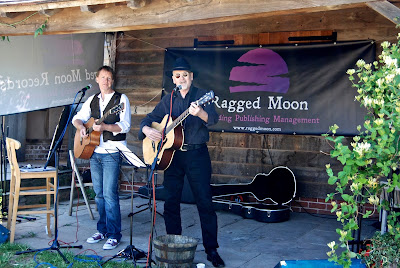In honour of the upcoming festival season we feel its important to inform you festival-goers on how to be a good audience. Don't worry we're not giving you instructions here. But what we advise might surprise you. Sure the normal thoughts are to be respectful to artists when they perform and perhaps trying not to yawn during the gig.
However lets be honest crowd engagement is what musicians truly thrive on. Forget standing around like a mannequin all set! Bands want you to give a response to their material and their performance. This is where our one slightly controversial piece of advice comes in. Get heckling.
Now bearing in my mind any heckle in good jest is totally acceptable but let's not get too involved in the other side of the spectrum. To give you all a good insight into the lost art of heckling we've compiled a list of do's and don'ts to ensure your one liners hit the mark.
DO - Be witty not cutting.
Finding a way to make a joke about the band without being offensive can be tricky. Add a crowd who are most likely huge fans and it gets even more difficult. Always remember to steer away from anything personal, it will most likely end in trouble that way and it will ultimately reflect badly on you. Anything light-hearted or witty will always get attention and will make for some fun interaction between you and the band.
DON'T - Shout random expletives at the band.
As the old adage goes if you haven't got anything nice to say don't say it at all. Only heckle if it's in good humour and isn't just an insult. The novelty of swearing wears off fast and provides nothing engaging for you or the artist. So make sure you formulate what you're going to say before you go off on a loud sweary rant as it doesn't benefit anyone!
DO - Time your heckles well.
Timing is key to landing that perfect one liner. Make sure you wait for the right moment to heckle otherwise it will end up sounding like a half garbled shout whilst the lead singer is mid-speech. If you want to be heard find where a gap will be in the conversation or set. Wait for the right opportunity then go for it.
DON'T - Keep accosting the band throughout the set.
You have to remember the band have come to perform a show. There's nothing wrong with a little interaction during the set. But if you end up heckling throughout the whole concert chances are you'll be thrown out. Don't ruin the experience for everyone else just because you want to squeeze in a few more laughs. Be respectful to the artist and let them do what they came here to do. Just remember one or two is fine anything more is overboard.
And remember, if you can't think of anything witty to say, show your appreciation by dancing your socks off!
Some of our favourite memorable heckles in the office are:
-"Play one the drummer knows!"
-(From a blind man) "Get off the stage!" shortly after he asked "Has he gone yet?"
-Bono's infamous "Every time I clap my hands, a child in Africa dies" "Well stop f***ing clapping then!"
To find out more about the history of heckling click here for more information.











